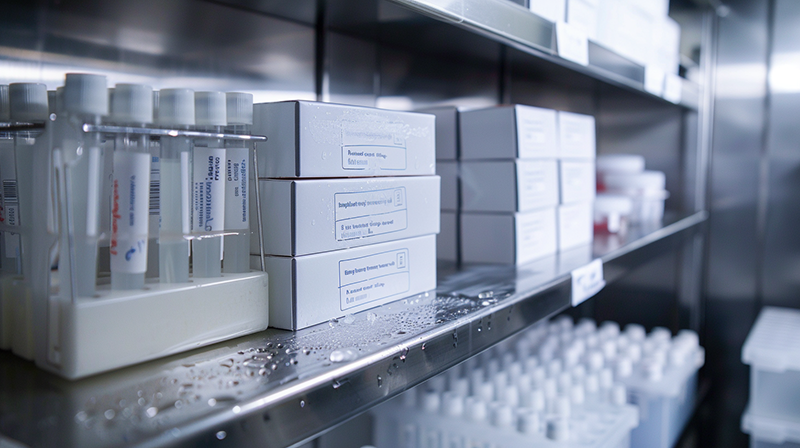
Can NMN Really Pause Aging? Inside the 60-Day Human Trial
Share
For years, scientists have been exploring whether boosting NAD+ levels can actually slow down the aging process. In 2023, a groundbreaking peer-reviewed human study published in GeroScience offered some of the clearest evidence yet: daily NMN supplementation can pause biological aging — at least over the course of 60 days.
The Study at a Glance
- Design: Randomized, double-blind, placebo-controlled
- Participants: 66 healthy adults, ages 40–65
- Intervention: 300mg, 600mg, or 900mg NMN daily vs. placebo
- Duration: 60 days
- Primary measure: Biological age via Aging.Ai blood-biomarker algorithm
The Results
- NAD+ levels rose significantly in all NMN groups (p ≤ 0.001)
- Biological age stayed flat in NMN groups — while placebo participants aged (p = 0.029)
- Endurance improved (6-minute walk test)
- Quality-of-life scores improved (SF-36 survey)
- Safety confirmed at doses up to 900 mg/day
What This Means for Longevity
Most of us assume our “cellular odometer” ticks forward daily. But this trial suggests that NMN supplementation may hit pause on biological aging.
The implications are profound:
- Improved energy and recovery
- Stronger cellular resilience
- Measurable proof that aging can be influenced at the cellular level
For those exploring longevity supplements, this trial shows NMN is far more than hype — it’s backed by real human data.
Why This 60-Day Study Made Me Double Down on NMN
When I first read the results of the 2023 GeroScience trial on NMN, I had to pause. Here was peer-reviewed, gold-standard data showing that in just 60 days, NMN users essentially put aging on hold — while the placebo group aged as expected.
As the founder of Genevity+, my mission has always been to deliver supplements that are not just trendy but truly transformative. This study validated what we’ve known from thousands of customer stories: NMN works.
What Stood Out to Me
The most striking finding wasn’t just higher NAD+ levels or better endurance. It was that biological age — a true marker of cellular function — stayed unchanged for NMN users.
Two months passed, but their cellular clock didn’t budge.
That’s why I personally double down on Genevity+ Liposomal NMN Capsules:
- Small-batch crafted
- Lab-tested for purity
- Stored frozen to protect potency
- Liposomal delivery for superior absorption
Because longevity isn’t just about living longer — it’s about living better.
📊 Key Findings from the 2023 NMN Human Trial (Lin et al., GeroScience)
- Design: Randomized, double-blind, placebo-controlled, 66 adults (ages 40–65), 60 days
- Doses: 300 mg, 600 mg, 900 mg NMN daily vs placebo
- Results:
- NAD⁺ levels rose significantly in all NMN groups (p ≤ 0.001)
- Biological age stayed flat with NMN, while placebo aged over 60 days (p = 0.029)
- Endurance improved (6-minute walk test)
- Quality-of-life scores increased (SF-36 survey)
- Safe at up to 900 mg/day
This study offers a glimpse into what could be possible: slowing the clock of biological aging. For me, and for Genevity+, it’s further proof that NMN supplementation is one of the most promising longevity tools available today.
If you’re considering NMN, make sure it’s a pure, lab-tested, liposomal form — the kind we deliver at Genevity+.
FAQ: NMN Human Trial Findings
How much NMN was tested in this study?
Doses of 300 mg, 600 mg, and 900 mg daily were used — all proved safe and effective in raising NAD+.
Did NMN really slow aging?
The study showed that while placebo participants aged over 60 days, NMN users maintained their biological age.
Is NMN safe for daily use?
Yes. The trial confirmed safety for up to 900 mg/day in healthy middle-aged adults.
👉 Reference links:
Yamashita S, Koga R, Iwabu M, Morimoto Y, Fukui K, Kameda M, Matsumoto T, … Ueda K. (2022).
*The efficacy and safety of β-nicotinamide mononucleotide (NMN) supplementation in healthy middle-aged adults: a randomized, multicenter, double-blind, placebo-controlled, parallel-group, dose-dependent clinical trial.*
GeroScience, 44(6), 2873–2885.
